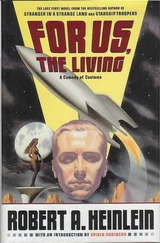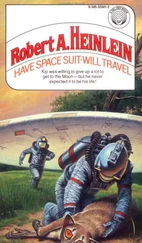Robert Heinlein - Time Enough For Love
Здесь есть возможность читать онлайн «Robert Heinlein - Time Enough For Love» весь текст электронной книги совершенно бесплатно (целиком полную версию без сокращений). В некоторых случаях можно слушать аудио, скачать через торрент в формате fb2 и присутствует краткое содержание. Жанр: Фантастика и фэнтези, на английском языке. Описание произведения, (предисловие) а так же отзывы посетителей доступны на портале библиотеки ЛибКат.
- Название:Time Enough For Love
- Автор:
- Жанр:
- Год:неизвестен
- ISBN:нет данных
- Рейтинг книги:3 / 5. Голосов: 1
-
Избранное:Добавить в избранное
- Отзывы:
-
Ваша оценка:
- 60
- 1
- 2
- 3
- 4
- 5
Time Enough For Love: краткое содержание, описание и аннотация
Предлагаем к чтению аннотацию, описание, краткое содержание или предисловие (зависит от того, что написал сам автор книги «Time Enough For Love»). Если вы не нашли необходимую информацию о книге — напишите в комментариях, мы постараемся отыскать её.
Time Enough For Love — читать онлайн бесплатно полную книгу (весь текст) целиком
Ниже представлен текст книги, разбитый по страницам. Система сохранения места последней прочитанной страницы, позволяет с удобством читать онлайн бесплатно книгу «Time Enough For Love», без необходимости каждый раз заново искать на чём Вы остановились. Поставьте закладку, и сможете в любой момент перейти на страницу, на которой закончили чтение.
Интервал:
Закладка:
During the mock-warfare cruise that opened David's last year of school a group of his classmates were discussing what cadet ranks each would receive. By then, they knew pretty well which ones would be selected as cadet officers. Jake is certain to be cadet corps commander-unless he falls overboard. Who gets his battalion? Steve? Or Stinky?
Someone suggested that Dave was in line for that battalion. Dave had been listening instead of talking, a 'standard feature of his "low profile"-and very nearly a third way to lie, Ira, and easier than its equivalent-talking while saying nothing-and also tends to give the nontalker a reputation for wisdom. Never cared for it myself-talking is the second of the three real pleasures in life and the only thing that sets us apart from the apes. Though just barely.
Now David broke-or appeared to break-his habitual reserve. "No battalion for me," he said. "No indeedy! I'm going to be regimental adjutant and stand out in front where the girls can see me."
Perhaps his remark wasn't taken seriously-regimental adjutant is lower than battalion commander. But it was certain to be repeated, and David knew it, perhaps by the prospective cadet regimental commander to commissioned officers making the selections for cadet officers.
No matter- David was chosen regimental adjutant.
In any military organization of that time, a regimental adjutant did stand out in front, all alone, where female visitors could hardly avoid seeing him. But one may doubt that this figured into Dave's plans.
The regimental adjutant attends no formations other than full regimental formations. He goes to and from classes alone, instead of marching or being marched. Other first classmen are responsible each for some unit of cadets, be it squad, platoon, company, battalion, or regiment; the regimental adjutant has no such responsibilities and only one minor administrative task; he keeps the watch list for the most senior of the cadet officers.
But he is not on that watch list himself. Instead he is supernumerary who fills in when one of them is ill.
And this was the lazy man's prize. Those cadet officers were perfect specimens and the chances that one would be too ill to take his day's duty ranged from negligible to zero.
For three years our hero had been standing watch about every tenth day. These watches weren't difficult, but they involved either getting to bed a half hour late or getting up a half hour early, and much standing on tired feet, all an affront to Dave's tender regard for his comfort.
But his last year David stood only three watches, and he "stood" those sitting down, as "Junior Officer of the Watch."
At last the Day arrived. David graduated, was commissioned-then went to the chapel and remarried his wife. If her belly bulged a little, that was not unusual in brides even in those days, and was always ignored, and condoned once a young couple married. It was widely known though rarely mentioned that an eager young bride could accomplish in seven months or less what takes nine for cow or countess.
Dave was safely past all rocks and shoals; he need never again fear going back to that mule and "honest work."
But life as a junior officer in a warship turned out to be less than perfect. It had good points-servants, a comfortable bed, easy work that rarely got David's hands dirty, and twice as much money. But he needed that and more, to support a wife, and his ship was at sea enough that he often lacked the pleasant compensations of marriage. Worst of all, he stood heel-and-toe watches on a short watch list; this meant a four-hour night watch about every other night standing up. He was sleepy much of the time and his feet hurt.
So David applied for training as an aeronaut. This Navy had recently grasped an idea called "air power" and was trying to grab as much of it as possible in order to keep it out of the wrong hands-the Army's hands, that is. They were behind as the Army had grabbed first-so volunteers for flying were welcome.
David was quickly ordered to shore duty to see if he had the makings of an aeronaut.
He had indeed! He not only had the mental and physical qualities but also was highly motivated-as his new work was done sitting down, whether in classroom or in the air, and he stood no night watches and received pay-and-a-half for sitting down and sleeping at home; flying was classed as "hazardous duty" and extra pay was awarded.
I had best say something about these aeroplanes since they resemble not at all the aerodynes you are used to. In a way they were hazardous. So is breathing. They were not as hazardous as the automotive ground vehicles then in use, and not nearly as hazardous as being a pedestrian. Accidents, fatal and otherwise, usually could be traced to a mistake on the part of the aeronaut-David never let that sort of accident happen to him. He had no wish to be the hottest pilot in the sky; he merely wanted to be the oldest.
Aeroplanes were weird monstrosities looking like nothing in the sky today, save possibly a child's kite-they were often called "kites." They had two wings, one above the other, and the aeronaut sat between them. A small baffle helped to deflect wind from his face. Don't look surprised; these flimsy structures flew very slowly, pulled through the air by a powered screw.
Wings were made of varnished cloth held rigid by struts- you can see from this alone that their speeds could never be any large fraction of the speed of sound-except on sad occasions when an overly eager pilot would dive straight down, then pull the wings off through trying too abruptly to recover a normal attitude.
Which David never did. Some people are natural fliers. The first time David examined an aeroplane he understood its strengths and weaknesses as thoroughly as he understood the milking stool he had left behind him.
He learned-to fly almost as quickly as he had learned to swim.
His instructor said, "Dave, you're a natural. I'm going to recommend you for fighter training."
Fighter pilots were the royalty of aeroplane fliers; they went up, and engaged enemy pilots in single combat. A fighter who did this successfully five times-killed the opposing pilot instead of being killed-was called an "Ace," which was a high honor, for, as you can see, the average chance of doing this is the fifth power of one-half, or one in thirty-two. Whereas the chance of getting killed instead is the complement, close to certainty.
Dave thanked his mentor while his skin crawled and his brain went whir-click as it considered ways to avoid this honor without giving up pay-and-a-half and the comfort of sitting down.
There were other disadvantages to being a fighter pilot besides the prime hazard of getting your ass shot off by some stranger. Fighter pilots flew in one-man kites and did their own navigation-without computers, homing devices, or anything that would be taken for granted today-or even later that century. The method used was called "dead reckoning," because, if you didn't reckon it correctly, you were dead-since Navy flying was done over water, from a small floating aerodrome, with a margin of safety in fuel for a fighter plane of only minutes. Add to this the fact that a fighter pilot in combat had to choose between doing navigation or giving single-minded attention to attempting to kill a stranger before that stranger killed him. If he' wanted to be an "Ace"-or even eat dinner that night-he must put first things first and worry about navigation later.
In addition to the chance of being lost at sea and drowned in a kite that was out of gas-did I say how these things were powered? The airscrew was driven by an engine powered by a chemical exothermic reaction-oxidation of a hydrocarbon fluid called "gas," which it was not. If you think this unlikely, I assure you that it was unlikely even then. The method was woefully inefficient. A flier was not only likely to run out of gas with nothing around him but ocean, but also this temperamental engine often coughed and quit. Embarrassing. Sometimes fatal.
Читать дальшеИнтервал:
Закладка:
Похожие книги на «Time Enough For Love»
Представляем Вашему вниманию похожие книги на «Time Enough For Love» списком для выбора. Мы отобрали схожую по названию и смыслу литературу в надежде предоставить читателям больше вариантов отыскать новые, интересные, ещё непрочитанные произведения.
Обсуждение, отзывы о книге «Time Enough For Love» и просто собственные мнения читателей. Оставьте ваши комментарии, напишите, что Вы думаете о произведении, его смысле или главных героях. Укажите что конкретно понравилось, а что нет, и почему Вы так считаете.












